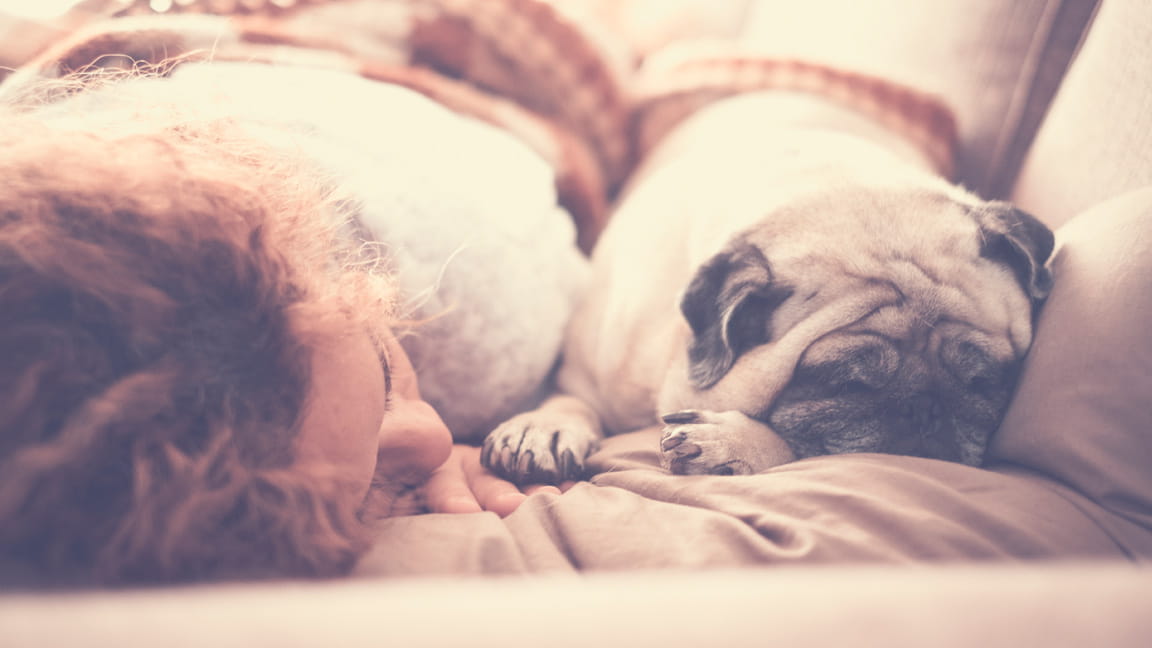Take a Nap: The Benefits of Napping and How to Make It Work for You

Do you take naps? Maybe you should! A good nap can get you out of that afternoon slump, recharge your energy, and leave you more alert and in a better mood. But when, where and how long? Get the secrets to a successful power nap.
Let’s start with a quick quiz:
- Do you get less than the recommended 7-9 hours of sleep each night?
- After lunch, do you start to feel cranky and irritable?
- Are you bright and alert in the morning, but find it hard to concentrate by the afternoon?
- Do you need another cup of coffee or a sugary energy drink just to make it to dinner?
Yes? If you answered “yes” to any of the above, this oldie-but-goodie might be for you: napping. That’s right, naps aren’t just for kids anymore. Research has shown that, even among adults, naps provide many benefits to help you make it through the day.
Benefits of Napping
Increased Alertness: It’ll be easier to pay attention during your staff meeting -- or while driving your forklift -- if you can avoid nodding off or spacing out.1
Attitude Adjustment: After a nap, you’ll be less impulsive and better able to deal with frustration -- in other words, you’ll be in a better mood. Napping kills the crankiness.2
Improved Memory: When your computer crashes, you lose data. But when you crash on the couch for a while, it actually helps your memory. A nap can make it easier to recall facts learned earlier that day.1
A Creative Mindset: You need sleep to learn new skills and to be creative (that’s when your brain can finally process the info you’ve stuffed into it).3 The good news is: a long nap can be similar to a night’s sleep to get you inspired.4
Cash Saver: You probably know that energy drinks and too much coffee aren’t good for you and aren’t as good for your brain as a nap5, but have you calculated how much money you’d save by replacing costly trips to the cafe with free naps?
How to Nap Smart
Maybe you’ve decided that napping sounds like a plan. If you’re going to give napping a try, do it right. It’s not as simple as nodding off any time you feel an inkling to yawn.
When: Mid-afternoon is best (around 3 PM). Don’t nap too late in the day, or you’ll be wide awake at night and spoil your bedtime routine.5
Where: Find a cool, quiet place to doze. Maybe your car during a break, if you don’t want the boss to catch you snoozing. (That said, many companies are starting to wise up by letting employees lie down for a break.6)
How Long: You don’t want to wake up in the middle of deep sleep or you’ll be even groggier than when you started. For a short nap, keep it to 20 minutes.5
Note: If you still plan on supplementing your nap with a cup of coffee, drink it before you nod off. It takes time for caffeine to activate, and it will likely kick in right as you wake up from a short snooze.7
Plan your nap now.
Want to super-charge your afternoon? Plan your snooze in advance and it’ll go a lot smoother.
- Pick a time today, tomorrow or later this week when you could use a recharge.
- Now, determine where you’ll nap: in your car, at your desk or a comfy spot at home.
- Finally, put it on your calendar.
Now relax, and get those bonus Zs, so you can be Healthy For Good!
Sources:
1 Milner CE, Cote KA. Benefits of napping in healthy adults: impact of nap length, time of day, age, and experience with napping. Journal of Sleep Research. May 2009.
2 Goldschmied J et al. Napping to modulate frustration and impulsivity: A pilot study. Personality and Individual Differences. November 2015.
3 Mednick S, Nakayama K, Stickgold R. Sleep-dependent learning: a nap is as good as a night. Nature Neuroscience. 2003.
4 Whitehurst LN et al. Autonomic activity during sleep predicts memory consolidation in humans. Proceedings of the National Academy of Sciences. June 2016.
5 Mednick SC, Cai DJ, Kanady J, Drummond SPA. Comparing the benefits of Caffeine, Naps and Placebo on Verbal, Motor and Perceptual Memory. Behavioral Brain Research. 2008.
6 Sleeping at Work: Companies with Nap Rooms and Snooze-Friendly Policies. National Sleep Foundation, Sleep.org. Accessed May 2018.
7 Hayashi M, Masuda A, Hori T. The alerting effects of caffeine, bright light and face washing after a short daytime nap. Clinical Neurophysiology. December 2003.








